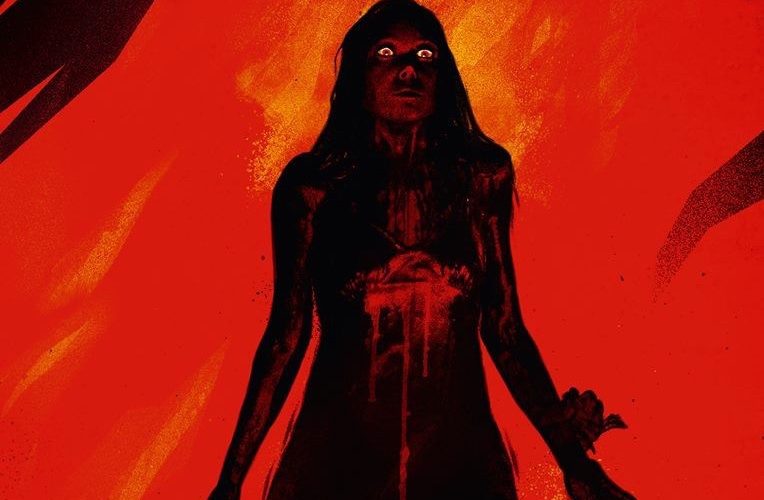Carrie (1976) – Review.
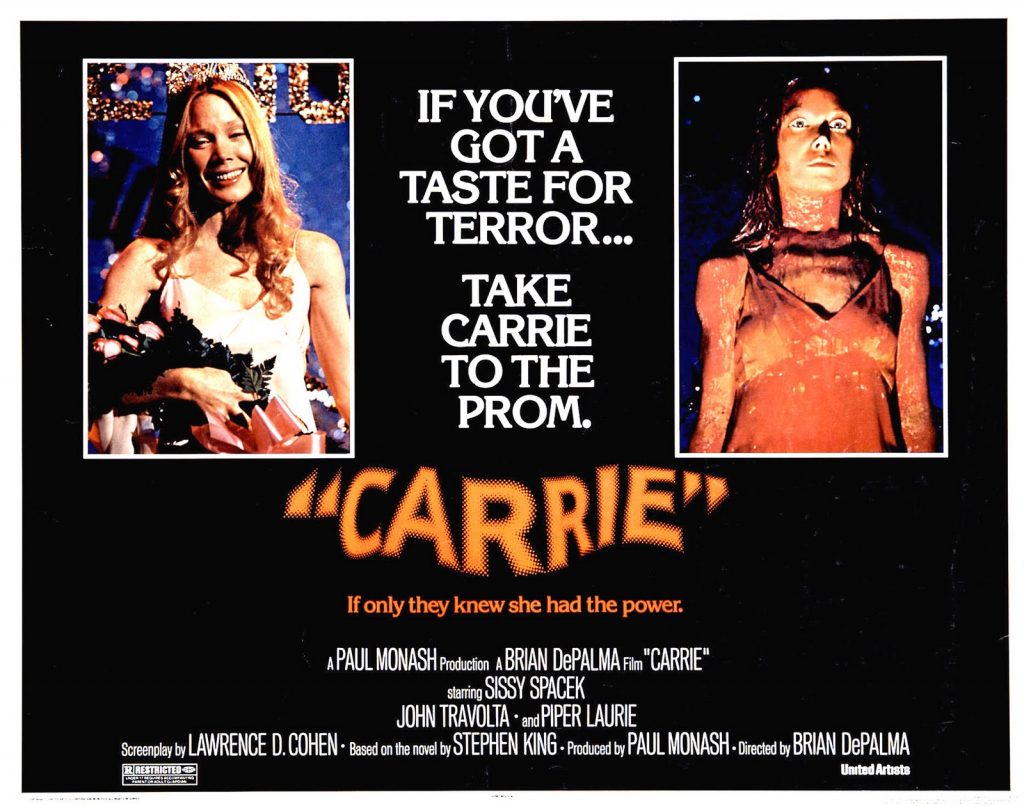
De Palma’s Horror/Thriller Is Also An Unconventional Take On The Superhero Movie.
*** SPOILER ALERT ***
Brian De Palma’s adaptation of Stephen King’s tale of a young high school girl and social outcast with certain special abilities is arguably the film that first garnered the director the recognition that would see him become one of the most capable filmmakers of his generation. Marketed as a horror upon its release 41 years ago in November of 1976, today the film would no doubt be shoehorned into the ever expanding superhero genre being the tale of a telekinetic teenager but in 1976 we were still two years away from Christopher Reeve’s genre creating Superman.
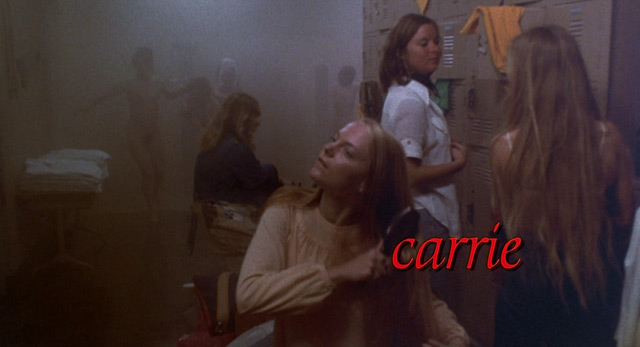
The film opens with a scene in the Bates High School volleyball court where our young female protagonist is cruelly chided by her fellow pupils for losing the game for them. From there we move to the girls communal showers where Carrie, to her horror, gets her first period not having any prior understanding of her own body, only to be met with vile treatment from her “friends”. It’s here we see the first brief glimpse of what makes Carrie different to the rest of the kids at the high school, her blossoming telekinetic abilities.
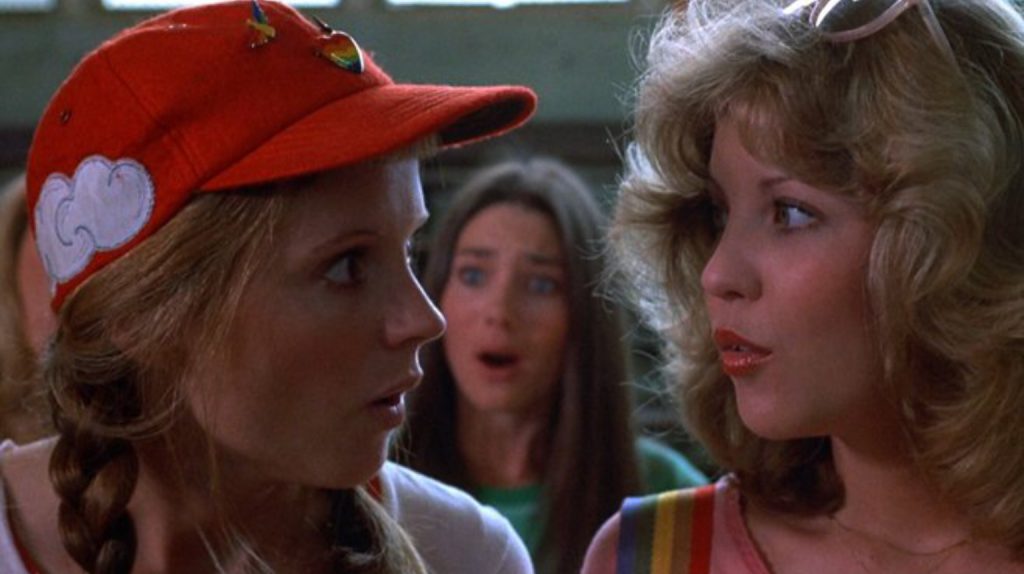
The young ensemble cast includes a pre-Saturday Night Fever John Travolta who plays the piggish boyfriend of Carrie’s nemesis, the sadistic über bitch Chris Hargensen, played by the lovely Nancy Allen who would become something of a De Palma regular (and his wife at one point). Sissy Spacek puts in a stellar performance of such nuanced innocence as the tortured Carrie. Spacek would isolate herself from the rest of the cast during filming, working on her awkward body language to perfect her performance as the painfully introverted teenager. Betty Buckley offers some well needed sympathy as the caring Miss Collins who nurtures Carrie whilst inwardly despising the bullies who torment her.
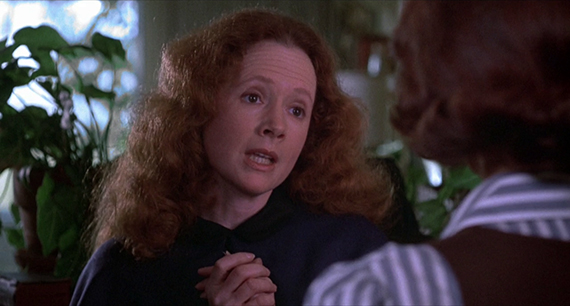
The true horror of De Palma’s film is the fiercely religious Margaret White played by Piper Laurie who gives a career best performance as Carrie’s abusive mother. Everything about Laurie’s performance evokes unease and discomfort. The motivations for her disgust at all things sexual and her extreme fanaticism are unclear but don’t really need to be explained in any great detail. Is her need to terrorise, coerce and control her meek and seemingly helpless daughter due to the fact that she knows of and is fearful of Carrie’s secret? This question is never answered and it’s this potentially unmotivated madness that makes her character all the more monstrous.
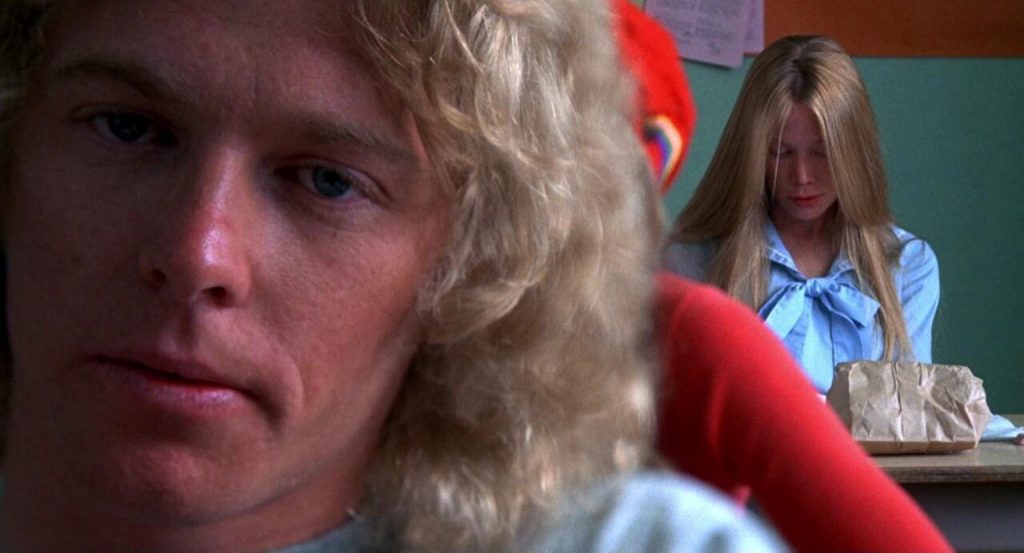
De Palma’s later trademark technical flourishes aren’t really in full effect here but his direction is still confident and assured. Frequent use of the split diopter, a favoured technique of the director, sits alongside some effective use of panning crane work and some lean editing – the film flies by at a brisk pace with no fat on the meat or sense of lagging. The slow motion lead up to the fateful bucket drop effectively ramps up the tension to suitably nail biting levels. This is amplified by Pino Donaggio’s score which, for the most part, is perfectly suited with a sense of melancholy but in places is hardly subtle with the on-the-nose use of the same harsh strings that Hitchcock used in Psycho’s infamous shower scene, used here to accompany Carrie’s telekinetic outbursts.
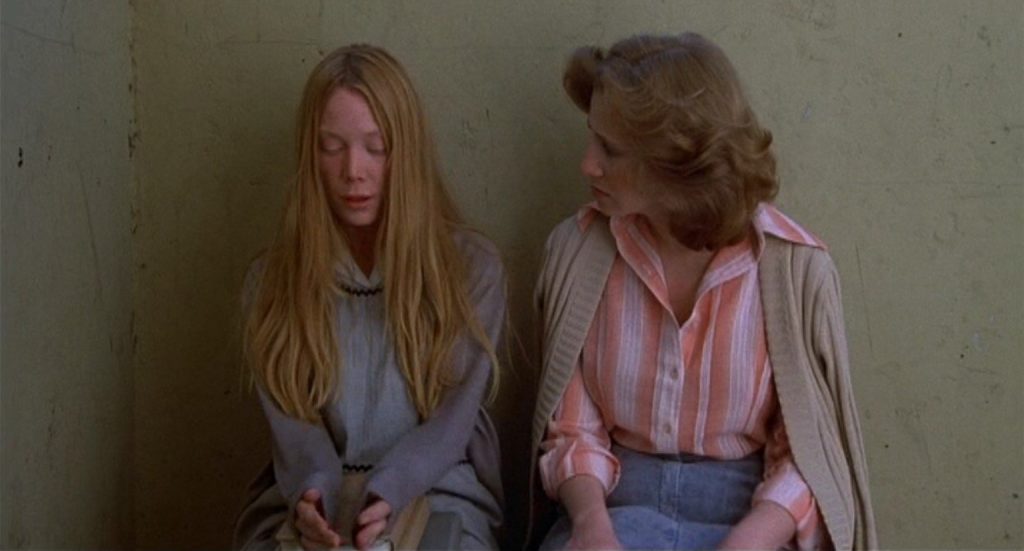
When one of Chris’s friends, Sue (Amy Irving) convinces her boyfriend, Tommy (William Katt) to ask Carrie to the prom, events are set in motion that will at first empower Carrie but will also give Chris an opportunity to show the full extent of her malice towards Carrie. It’s a cruel piece of subterfuge to see her veil of shyness temporarily lifted at the prom as she experiences a brief moment of joy before Chris’ evil prank is sprung upon Carrie as she is anointed prom queen. But it’s Carrie who has a swift and brutal revenge as her pent up rage is unleashed in a flurry of telekinetic fury. The sheer wide eyed intensity of Spacek’s performance here is very satisfying although some of her victims are those that truly cared for Carrie, this only serves to add to the tragedy.
The film’s most satisfying moment comes when Carrie faces her mother for the final time and finds retribution in a few well placed kitchen utensils. The image of Margaret White pinned in a crucifixion pose is a poetically fitting end for her character.
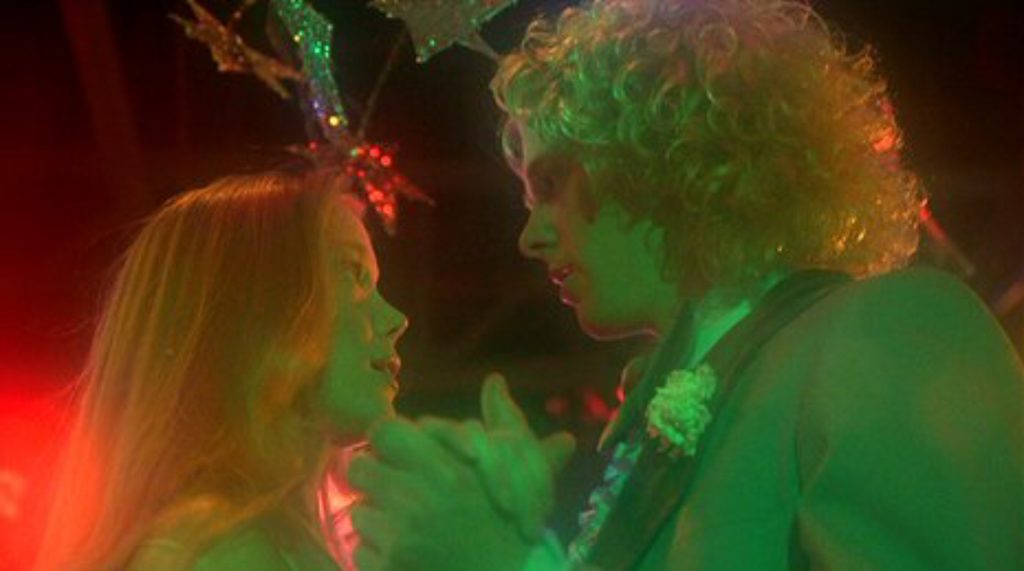
Carrie is often marked out as a horror film but it doesn’t conform to many of the standard horror conventions nor is it really very frightening save for the hand coming up through the ground which ends the film with a suitably effective jolt shock. The film’s themes of teen angst, religious fanaticism and telekinesis meld well into a cohesive whole that, at the time of its release, was refreshingly unique. Carrie’s influence carried through to the director’s subsequent 1978 film The Fury and Carrie author Stephen King’s own Firestarter in 1984. Even today, films such as Josh Trank’s 2012 film, Chronicle bear some striking similarities to De Palma’s film.
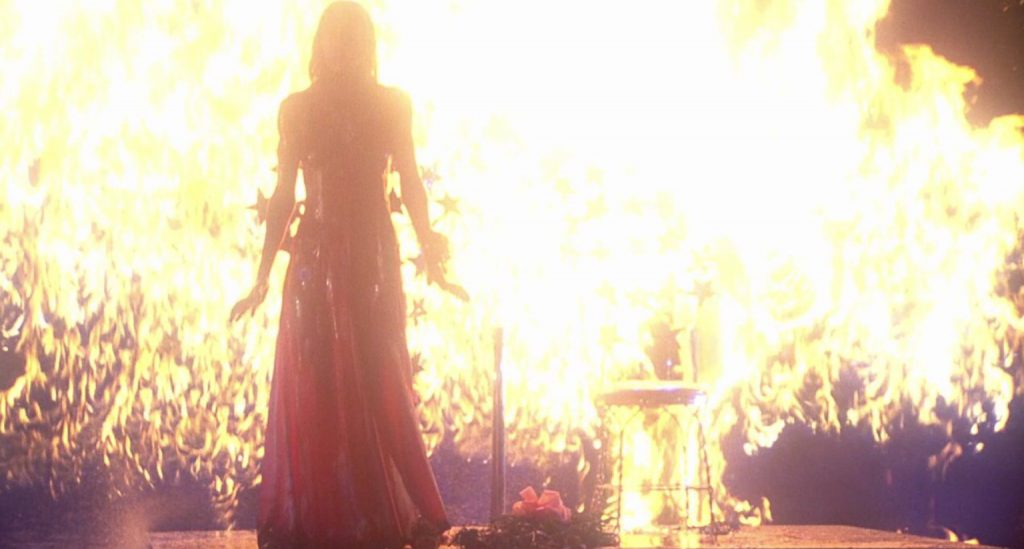
Carrie remains a fine entry into the vast De Palma filmography. It isn’t the director’s best film in my opinion but it has aged well and features great performances from Spacek and Laurie as well as some enduring and iconic imagery. It isn’t an easy watch due to the overwhelming sympathy the film generates towards Carrie whose life is an endless cycle of suffering but that’s surely what adds to the overall unease the film engenders and therefore part of its allure as a quasi-horror-thriller. De Palma’s film has carried those 41 years well and for those wishing to acquaint themselves with the great director’s body of work, this is as good a starting point as any. Carrie earns my very firm recommendation as a classic of the horror genre.
Film ‘89 Verdict – 8/10
Carrie is available on Blu Ray in the US courtesy of Shout Factory and in the UK courtesy of Arrow Video who are releasing a deluxe Collector’s Edition on December 11th 2017.

